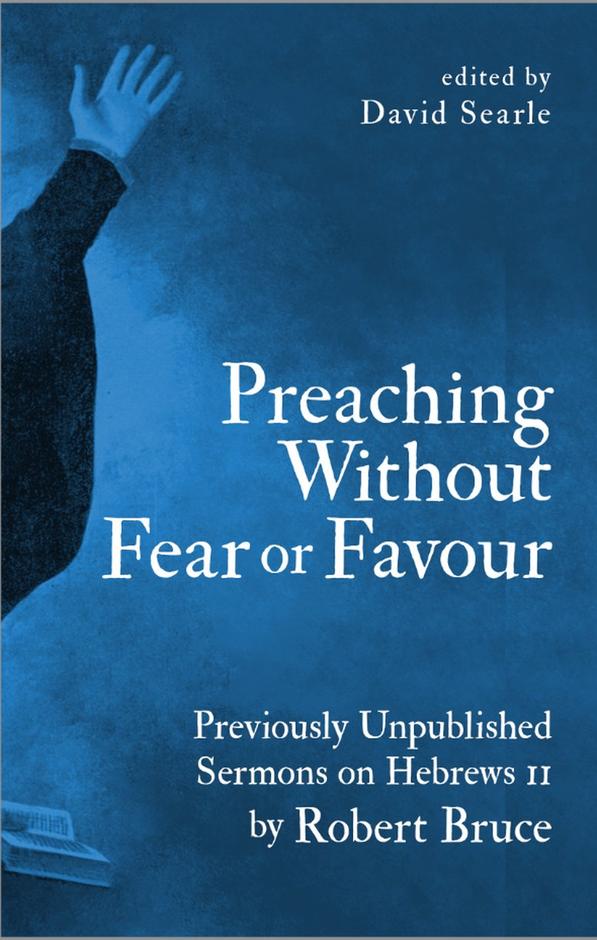It is impossible to surpass the superlative commendations this volume has already received:We are indebted to David Searle…David Searle has provided a very valuable resource for the church today…David Searle has done us a great service.
Bruce preached through Hebrews 11 between 1590 and 1592 while he was minister of St. Giles in Edinburgh. The manuscripts have been kept in the special collections of New College Library and are only now being published for the first time as the result of three years of painstaking work. First, David had to transliterate the old Scots lettering in Bruce’s own handwriting into our familiar alphabet. He then had to translate the sermons from the Braid Scots into English, and finally edit them into something publishable. To make the sermons even more accessible to a modern audience, David has compiled copious notes on the historic and ecclesiastical context in which they were preached.
Although delivered 400 years ago, these sermons are remarkably relevant for 21st century Scotland. We forget how recent and therefore how precarious the Reformation settlement of 1560 was. Bruce preached to people who still hadn’t grasped the full implications of justification by grace through faith alone. So he hammers these precious truths home time and time again—just as preachers must still do.
I would challenge anyone hearing the following sentence from the fifth sermon not to think that Bruce had said it today:"Again, every one of us also knows the strong influence of something that becomes accepted as normal; even though some vice appeared odious when someone first started to practice it, people gradually became accustomed to it, until what at first had shocked them ultimately became enjoyable and commonplace."
Bruce has a lot to say about how Christians should respond to opposition. James VI was a particularly nasty character who persecuted Bruce when he spoke out against the king’s immorality. I found the sermon on Moses’ parents, who feared not the king’s command, prophetic in its application to the situation the modern Scottish church faces.
Anyone used to reading the English Puritans will find these sermons easy and enjoyable. There is a certain Scottishness about Bruce’s style. His material is well organised and systematic without the seemingly endless points of applications so beloved of his southern contemporaries. And though many of his applications are of historic interest only, he clearly knew the human heart well in all its sinfulness, pride, weakness, and fears. Here is a perfect example of pastoring the flock from the pulpit.
Christian Focus are to be commended for publishing this book in such an attractive and accessible format. As Stephan Williams says in his commendation:We owe much to David Searle; more to Robert Bruce and most to the Lord whose word to his people comes through so clearly in these pages. I heartily agree.
Ian Watson, Hope Church Blackwood & Kirkmuirhill


